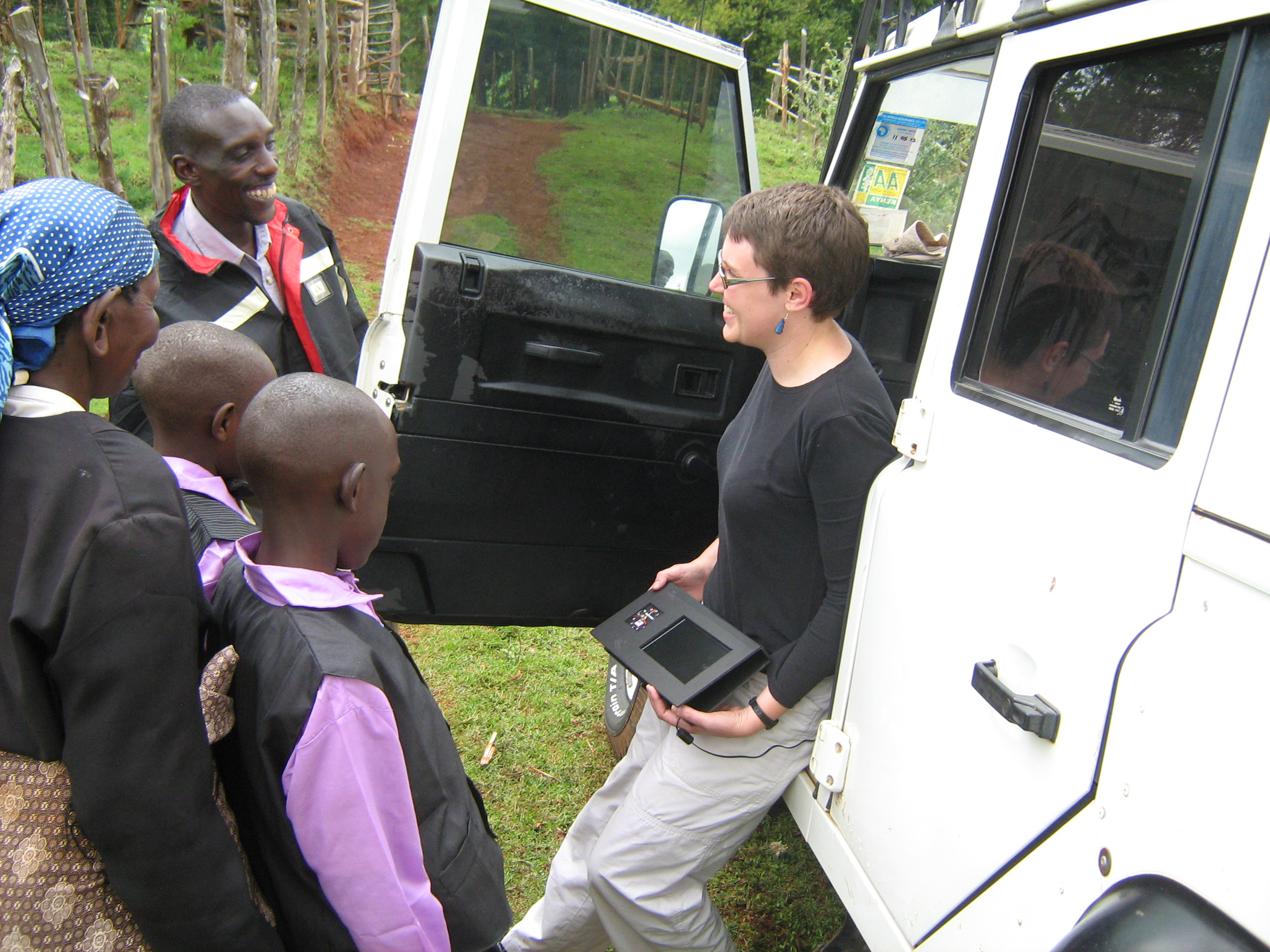Susan Wyche receives Skype grant for human-computer interaction research

Families in Kenya who communicate regularly with relatives in the U.S. are participating in a novel pilot study by a Virginia Tech computer scientist who hopes to improve the current technologies.
Skype has awarded Susan Wyche, a Computing Innovation Fellow (CI Fellow) at Virginia Tech's Center for Human-Computer Interaction, a grant to support human-computer interaction (HCI) research in Kenya.
HCI is the study, planning, and design of the interaction between computers and the people who use them. It is often regarded as the intersection of computer science, behavioral sciences, design, and several other fields of study.
In 2010, Wyche joined the computer science department at Virginia Tech. Her primary research has been centered on HCI, design, and cultural studies of technology.
"Information and communication technologies (ICT), such as Skype, are changing the way families communicate, coordinate, and connect with each other," Wyche said.
Research conducted on computer-mediated communication within the family has overwhelmingly increased over the last decade, but has mainly focused on western families with members living in the same country. When members live in countries with underdeveloped ICT infrastructures, families face extra challenges, such as time zones differences and lack of reliable internet access.
Wyche's research objective is to uncover opportunities for technology to improve communication and feelings of connectedness within transnational families.
Ten to 14 high-income Kenyan families with members dwelling in the U.S. are the concentration of her design-ethnographic study.
"Because professional Kenyans have greater access to ICTs than individuals in some other African countries, they can be characterized as lead users. Understanding how they interact with a Skype, email, mobile phones, and social networking sites can provide insights into needs that a broader range of users may encounter as Internet access becomes more widespread in other emerging markets in Africa," Wyche said.
Wyche's fieldwork will consist of in-home interviews; tours of the participants' homes; technology biographies, which are based on questions designed to determine past, present, and future ICT usage; and cyber café observations; all of which will take place over a six week period and in Nairobi, Machakos, Eldoret, and Kisumu.
Most recently, she wrote an article for the ACM Interactions magazine, "Designing for Everyday Interactions in HC14D," in which Wyche re-emphasizes the need to study, comprehend, and "design technology that supports users' routine activities ... that are as much a part of life in developing countries as they are in developed ones."
"As researchers work in this area [human-computer interaction for development, HCI4D], I hope to see them build on early efforts by focusing on a broader range of topics and understanding the commonalities, rather than differences, among users living in different countries," Wyche said.
Wyche worked as the lead product designer at Libbey Inc. where she imaged new glassware for clients such as Red Lobster, Olive Garden, Jack Daniels, and Target. While working at Libbey, Wyche was awarded 12 patent designs.
Wyche received her undergraduate degree in industrial design from Carnegie Mellon University, a master's in human factors from Cornell University, and a Ph.D. in human-centered computing from Georgia Tech.



